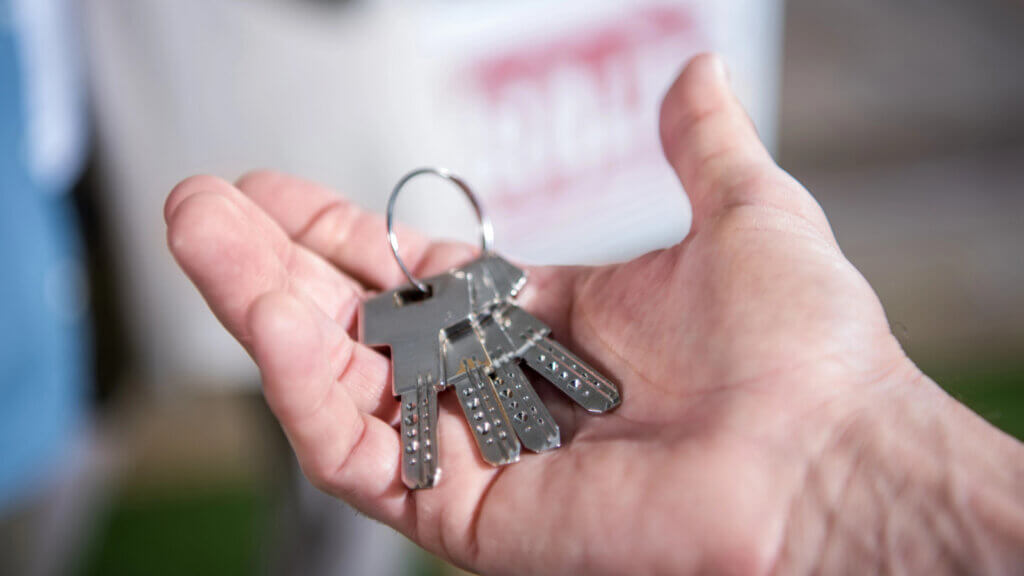Facing Overwhelming Home Repairs? You Have Loan Program Options
Living in a home that requires major repairs but you can’t afford to fix it can be incredibly stressful. You want your home to be a comfortable sanctuary. However, persistent issues can make it feel like a burden.
The good news is that there are various home repair assistance programs designed to help you maintain your property. This article will guide you through them and present you with a straightforward alternative.
Understanding the Types of Home Repair Loans
The U.S. government offers help with home repairs. But it’s crucial to understand the different forms of financial aid available.
Grants
Think of grants as gifts. It means that you don’t have to repay it. Unfortunately, they’re rare, highly competitive, and developed for very specific purposes:
- Accessibility improvements, such as ramps or wider doorways
- Lead paint abatement
- Critical health and safety repairs
Loan Programs
Loan programs aren’t like grants because the money you receive must be repaid. But they’re more accessible and affordable, especially for low-income homeowners. Examples of loan programs:
- Low-interest loan programs
- Deferred payment loans, where repayment isn’t required until you sell the home
These repair loans can help fund a wider range of home improvements.
Weatherization & Energy Efficiency Repair Programs
These are specialized repair programs focused on improving your home’s energy efficiency.
- Low Income Home Energy Assistance Program (LIHEAP): It’s designed to fund upgrades such as new windows, insulation, or furnace repairs.
Government Support for Homeowners: Key Home Improvement Programs
The government, both federal and state, plays a vital role in supporting homeowners or residents with home repair needs. Various loan programs and grants are available. They’re often tailored to specific demographics of property types.
Federal Loan Programs and Resources
Several federal agencies offer home repair programs and grants to support homeowners with necessary rehabilitation and home improvements:
- U.S. Department of Housing and Urban Development (HUD): HUD offers loans for homeowners and even rental properties.
- Eligibility Requirements: They can vary for each program. Thus, check the specifics.
- HUD Title 1 Property Improvement Loan Program offers financing for various home repairs and improvements.
- 203(k) Rehabilitation Mortgage Insurance Program allows homebuyers and owner to borrow money with loan amounts up to $35,000 into their mortgage for rehabilitation.
- USDA Rural Development: For single-family homeowners in rural areas, the USDA’s Section 504 Home Repair Program provides grants and repair loans for very low-income homeowners.
- To be eligible, the repair must be to remove health and safety hazards or make accessibility improvements.
- Veterans Affairs (VA): The VA offers home repair programs for eligible veterans to help fix their homes. These would include repairs related to disabilities, according to the U.S. Department of Veterans Affairs.
State and Local Repair Programs
Most loans are managed at the state and local levels. These types of assistance funds have specific eligibility criteria based on your location and household income.
- State Housing Finance Agencies: Your HFA is an excellent starting point. They sometimes administer funding for fixing homes.
- The state government may offer disaster recovery loans to help individuals whose homes were damaged by a disaster.
- Local Community Development or Housing Services Departments: Many cities and counties have dedicated departments that oversee community development and budget for home improvements.
- For instance, in Philadelphia, households with incomes below 60% of the Area Median Income can apply for funding to afford home restoration. Philadelphia Housing Development Corporation (PHDC) emphasized that you must own the home you wish to fix to be qualified.
- The Department of Community and Economic Development in Pennsylvania lists the Whole Home Repairs Program (WHR) as a significant initiative that supports existing home improvements in this state.
- This type of program is a testament to how investment in homes and communities is recognized as an effective way to combat the housing crisis.
To find a program in your area, contact your local Department of Housing or Community Development. They can help you determine your eligibility and identify the right funding options for you.
For many homeowners, navigating this complex system of applications and waiting lists adds more stress to an already difficult situation. If this feels overwhelming, it’s important to know there is another path available that provides certainty and speed.
The Reality of a Repair Program: What to Expect
This financing option might offer vital support. However, there are common challenges that a homeowner may encounter.
- Strict Requirements for Applicants: Most programs have stringent criteria. Often, they’re based on income, age, location, disability, and the nature of the repair project. You may need to meet certain thresholds or be located in a designated county.
- Long Waiting Lists: These funds are limited with high demand. Thus, many of them operate with long waiting lists. It can take months or years to receive approval or the money.
- Complex Application Process: Applying for government assistance can involve heavy paperwork and documentation. You might also need to provide property ownership, proof of income, and detailed estimates for the necessary restorations.
- Limited Scope of Work: Even if your application is approved, the money may not cover all the rehabilitation that your home needs. Most loans often prioritize health and safety issues or energy efficiency upgrades over cosmetic ones, just like Bucks County’s Home Repair Program.
A Simpler, Faster Alternative: Selling Your House “As-Is”

If you don’t qualify, can’t afford to wait, or simply want to move on without the stress of managing contractors and repairs, there’s another solution. That is, you can sell your house “as-is” for cash.
This option resolves many of the challenges when you apply for traditional loans from the government.
- No applications or waiting periods: You bypass the lengthy application process and uncertain waiting lists.
- No income or location requirements: Your financial situation or the specific location of your property typically won’t prevent you from getting an offer.
- No need to make any repairs yourself: You can sell your home exactly as it is without having to invest time or money in fixing it up.
- A fast closing: You can receive a fair, no-obligation cash offer and close on your schedule, often putting cash in your hand in as little as a week.
Ready to Start a New Life?
Opting to apply for a government loan just to fix your house can be complex. It may offer valuable support. However, there’s a long list of people waiting to be approved. You may not be eligible.
If you’re tired of waiting and wondering whether or not you qualify for government aid, there’s an easy way. You can bypass the stress of repairs, applications, and long waits by selling your home as-is for cash.
Get a fair, no-obligation cash offer for your home “as-is” from iBuyHomes and move on with your life.



